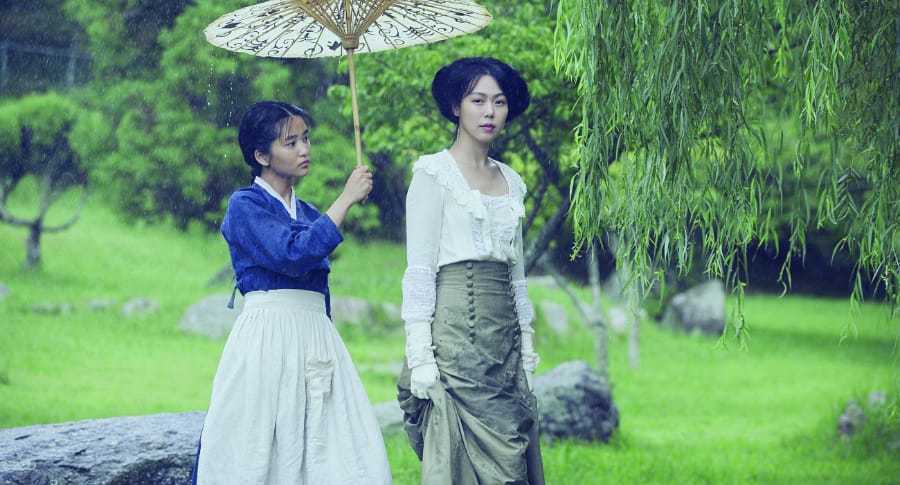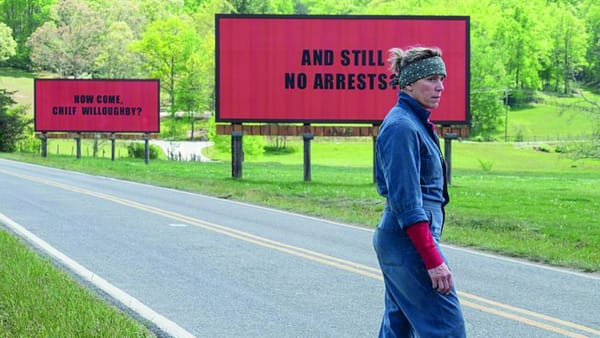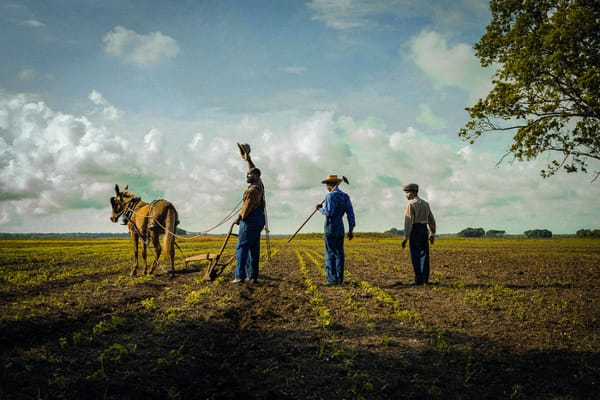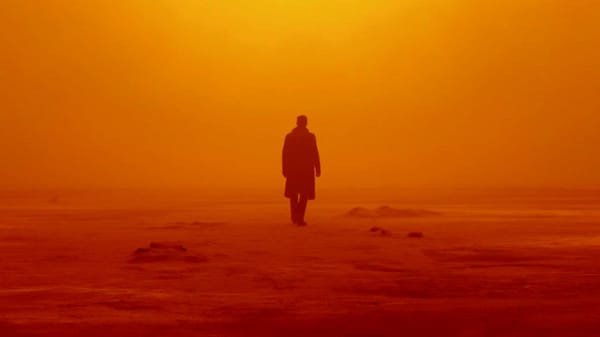For your consideration: the first annual Felix Film Awards for 2017
The Film Editors have cast their ballots. We are proud to present the 2017 winners of this year’s inaugural Felix Film Awards! Read on to see who came out on top…

As the year winds to a close, in lieu of compiling a list of the best films, directorial work and acting performances, we have decided to hand out prizes to those who merit them for their outstanding creative efforts. We imagine that the finest talents in world cinema are sat at the edge of their seats in anticipation, hoping that they are fortunate enough to earn a career-defining commemoration from us. There are no red carpets or golden statuettes, but welcome to the inaugural Felix Film Awards.
(Note: Only films with UK theatrical release dates in 2017 were eligible)
Best Picture
Call Me By Your Name Get Out Moonlight The Florida Project The Handmaiden
2017 was a very strong year for film. To narrow down the nominees to just five was challenging. To choose a winner excruciating. In the end, Park Chan-Wook’s erotic, psychological thriller, period drama (yes, you read that right) came out on top. Exquisitely crafted, bravely acted and grippingly paced, The Handmaiden is perhaps Park’s crowning achievement ahead of the brilliant Oldboy. This is a completely original work of art, and the fact that South Korea chose The Age of Shadows as its submission for the Academy Award for Best Foreign Language Film ahead of The Handmaiden is a travesty worthy of a jaw drop almost as big as the ones you will experience throughout this film.
Best Director
Sean Baker (The Florida Project) Luca Guadagnino (Call Me by Your Name) Barry Jenkins (Moonlight) Christopher Nolan (Dunkirk) Park Chan-Wook (The Handmaiden)
When choosing which director you might have to adapt Fingersmith, a Sarah Waters crime drama that is absolutely steeped in its setting of Victorian England, Korean director Park Chan-Wook might not immediately spring to mind. But scratch under the surface, and the decision makes perfect sense: Fingersmith is no novel of genteel Victoriana, but a gritty and dark narrative that revels in violence and black humour – two of Park’s trademarks. With The Handmaiden, Park not only manages to somehow keep the spirit of Waters’ novel alive – despite shifting the action to Japanese-occupied Korea – but also adds his own directorial nous. Delicately balancing a tricky script, which leaves the audience reeling, with a tightly-controlled visual language, Park has made one of the finest works in his career.
Best Actor
Casey Affleck (Manchester by the Sea) Timothée Chalamet (Call Me by Your Name) James Franco (The Disaster Artist) Jean-Pierre Léaud (La Mort de Louis XIV) Adrian Titieni (Graduation)
When an actor is young, it can be tempting to filter anything they do through their youth. Good, solid performances can be propelled to stratospheric heights if the person delivering those lines is under the age of thirty, perhaps because we expect great performances to only come with experience. For Timothée Chalamet, however, the star of simmering romance Call Me by Your Name, the hype is justified. At the tender age of 21, Chalamet has delivered a performance that is nuanced and restrained, one that manages to convey the agonies and tribulations of young love and desire.
Best Actress
Sonia Braga (Aquarius) Rebecca Hall (Christine) Isabelle Huppert (Elle) Kim Min-Hee (The Handmaiden) Natalie Portman (Jackie)
Isabelle Huppert has won multiple César Awards, a Golden Globe and the Best Actress award at all of the traditional big three festivals (Berlin, Cannes, Venice). Though she was robbed of the Academy Award earlier this year, she has now reached the pinnacle of her career in winning the Felix Award for best actress. She can finally retire happy, a wonderful career complete. Her performance in Elle is a devastating tour-de-force that needs to be seen to be believed. 2017 was a phenomenal year for leading actress performances, and while the other nominees are all tremendous, Huppert showed once again that she is just on another level to everyone else.

Best Supporting Actor
Mahershala Ali (Moonlight) Willem Dafoe (The Florida Project) Jason Mitchell (Mudbound) Michael Stulhbarg (Call Me by Your Name) Jean-Louis Trintignant (Happy End)
This is a category for the unsung heroes of cinema, often made up of young actors not quite ready to carry a film, and older actors deemed past their peak of marketability. Jason Mitchell is a young up-and-comer who has used the buzz off of his strong turn in Straight Outta Compton to appear in three very acclaimed films this year (Detroit, The Disaster Artist and Mudbound). Mahershala Ali’s career is on the rise too, having won the Academy Award for the very same performance he is nominated for here. Jean-Louis Trintignant is the old hand, a legend of French cinema still going strong into his late 80s. Michael Stulhbarg is a wonderful actor who shines across a number of this year’s awards contenders in The Post, The Shape of Water, and Call Me By Your Name. The latter is his big break (after his last big break in his Golden Globe-nominated turn for A Serious Man). Yet it is another underappreciated veteran, Willem Dafoe, who takes this one for his nuanced and grounded role as a warm yet stern motel manager. He is amongst the favourites for the upcoming Academy Awards.
Best Supporting Actress
Greta Gerwig (20th Century Women) Naomie Harris (Moonlight) Kim Tae-Ri (The Handmaiden) Carey Mulligan (Mudbound) Michelle Williams (Manchester by the Sea)
Playing one character can be difficult enough, but in The Handmaiden Kim Tae-Ri – who makes her feature film debut – plays a Russian doll of a role. As Sook-hee, the eponymous handmaiden of the film, Kim goes through various levels of subterfuge, and we are never quite sure what is an act and what is reality. Kim manages to keep the audience going along with her journey throughout all the twists and turns contained within The Handmaiden, which is no small feat. An actor playing an actor, Kim takes on a meta-role that is not quite matched by any of the other nominees, making her a worthy winner of the prize.
Best Adapted Screenplay
Armando Iannucci & David Schneider & Ian Martin & Peter Fellows (The Death of Stalin) James Ivory (Call Me by Your Name) Barry Jenkins (Moonlight) Park Chan-Wook & Chung Seo-Kyung (The Handmaiden) Virgil Williams and Dee Rees (Mudbound)
The great Stanley Kubrick once said that in order to make a great film, one needed a great book on which to base it. While history has shown that many great films have been made from original concepts, a great book can be a solid foundation from which to work from. That being said, properly doing justice to a piece of literature, and retaining its message while cutting bits out or changing things is a treacherous tightrope to walk. James Ivory does this remarkably well with Andre Aciman’s Call Me by Your Name, writing a beautiful adaptation that is in keeping with the original novel, while offering a unique cinematic quality. The result is so good Aciman himself claims it is better than his novel. Ivory was initially supposed to direct this work, but can be satisfied with his writing.
Best Original Screenplay
Maren Ade (Toni Erdmann) Yorgos Lanthimos & Efthymis Filippou (The Killing of a Sacred Deer) Kenneth Lonergan (Manchester by the Sea) Mike Mills (20th Century Women) Jordan Peele (Get Out)
Original screenplays saw what was perhaps their heyday in the ‘90s, with seven figure spec sales almost a regular occurrence. They have begun to make a resurgence in recent years, and this was a particularly tight category, with a diverse set of nominees so different to each other. In the end Maren Ade’s Toni Erdmann triumphed over the incumbent Academy Award-winning script amongst others to claim the prestigious Felix Award. Ade’s unconventional comedy is ostensibly about the relationship between an up-tight career-obsessed young woman and her carefree, juvenile father, a subject underexplored by cinema historically. In the background are deeper issues about gender discrimination in the workplace and the hollow nature of capitalist greed, all interwoven beautifully with a bizarre humour derived from a wholly original premise.

Best Cinematography
Chung Chung-Hoon (The Handmaiden) Roger Deakins (Blade Runner 2049) James Laxton (Moonlight) Linus Sandgren (La La Land) Hoyte van Hoytema (Dunkirk)
There were a number of beautifully shot films this year, many of which did not even make the list of nominees. We have seen different projects using film, be it 16mm, 35mm or even 70mm, all to great effect, while many have shown that digital really is a viable option for conjuring beautiful images. It would be wrong to give this award to anyone other than Roger Deakins though. The man is one of the all-time greats, and has mystifyingly never once won the Academy Award from his thirteen nominations, for titles that include Fargo, No Country for Old Men and The Assassination of Jesse James by the Coward Robert Ford. He is the favourite for this year’s award for his astonishing work on Blade Runner 2049, but if he is indeed snaked once again, he will at least have a Felix Award to console him.
Best Editing
Sean Baker (The Florida Project) Tom Cross (La La Land) Kim Jae-Bum & Kim Sang-Bum (The Handmaiden) Nat Sanders and Joi McMillon (Moonlight) Lee Smith (Dunkirk)
Cast your mind back to great films by the likes of someone like Robert Bresson, and it is clear that the editing is so good because you don’t notice it’s there. Tom Cross’ collaborations with Damien Chazelle have been the complete opposite, and that demonstrates the good editing is about aiding the story. Where Bresson demanded the attention to be on intimate details, Chazelle has shown himself to be extremely flashy since his breakthrough with Whiplash. That was a masterclass is fast cutting sequences to maintain a relentless pace. La La Land is a sweeping musical with a number of single take song and dance numbers, and Tom Cross is able to keep the sense of nostalgia while adding a modern, dynamic edge.
Best Score
Nicholas Britell (Moonlight) Jo Yeong-Wook (The Handmaiden) Mica Levi (Jackie) Oneohtrix Point Never (Good Time) Hans Zimmer (Dunkirk)
First comment on this category: La La Land, which took home the Academy Award, has good songs, but not much of a score. There is a difference. The score is there to aid the vision of the director, and add layers to the narrative. Zimmer’s machine-like sounds add to the sense of suspense in Dunkirk, the wonderfully named Oneohtrix Point Never’s electronic vibes drive gritty heist thriller Good Time, and Britell and Jo’s work on Moonlight and The Handmaiden respectively are just regal. That being said, the way in which Mica Levi’s score for Jackie accompanies Pablo Larrain’s tight close-ups to create a claustrophobia leaves the viewer barely able to breathe, just as Jackie Kennedy was in the days after her husband JFK was assassinated in front of the nation.
Best Documentary
Cameraperson City of Ghosts I Am Not Your Negro I Called Him Morgan Tower
Documentaries are not normally associated with the theatre in the same way that big costume dramas or high octane action films are. This has led to Netflix becoming perhaps the strongest distributor of non-fiction film, for those seeking something enlightening when they stay in on a cold night, or unwind after a hard day’s work. I Am Not Your Negro smashes this pattern to smithereens, managing to take almost $10 million in the States alone against a $1 million budget. This is a crucial incendiary meditation on race relations in America.









